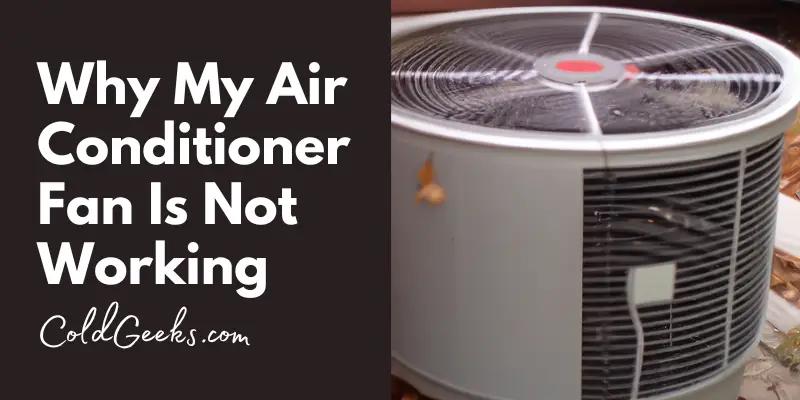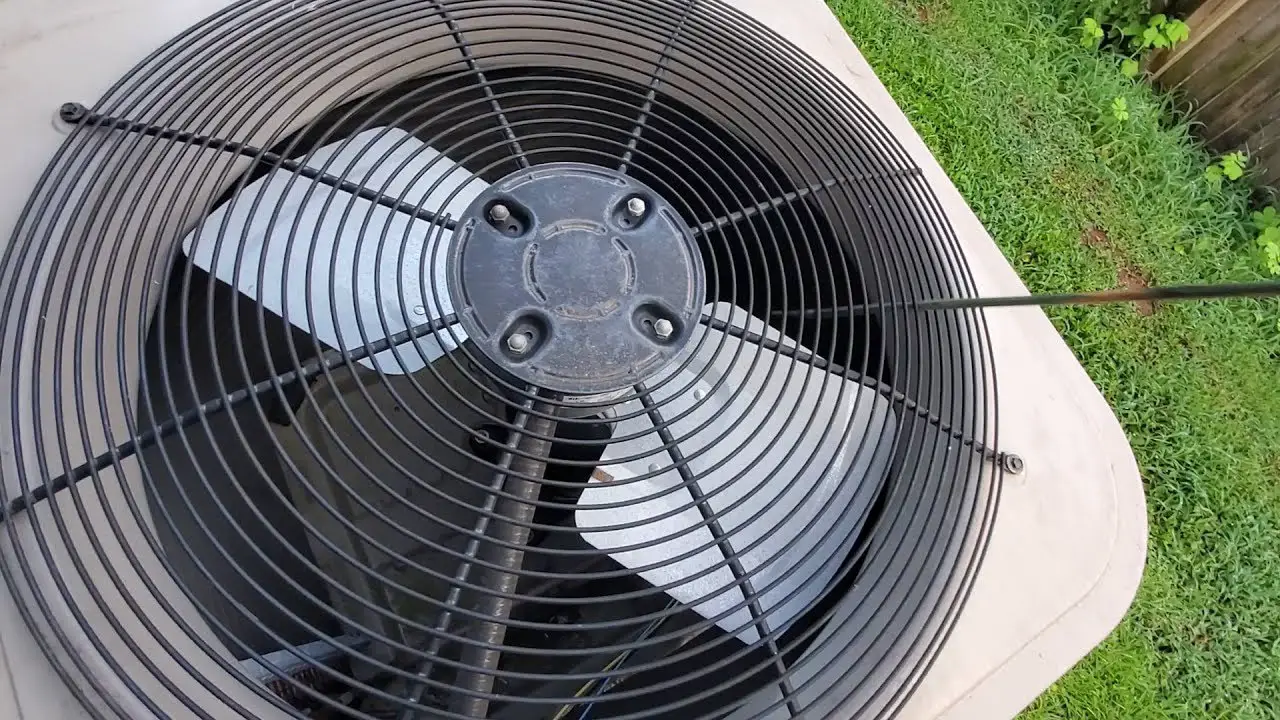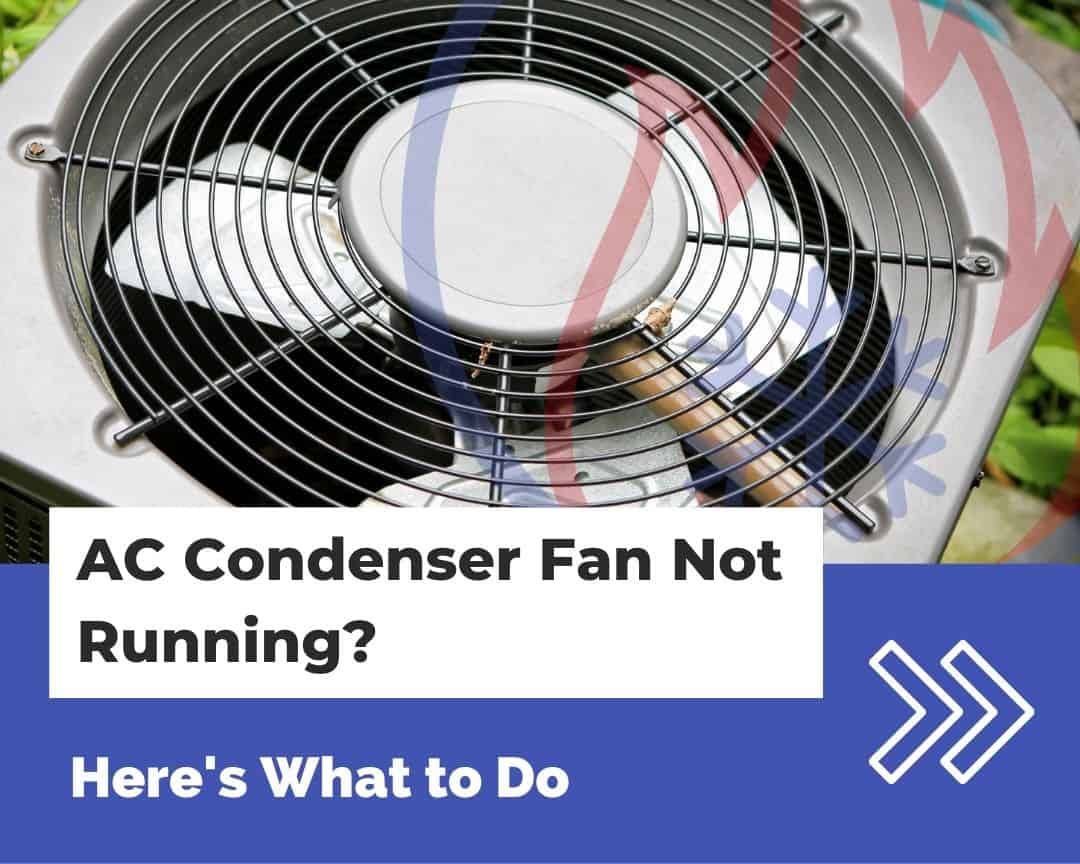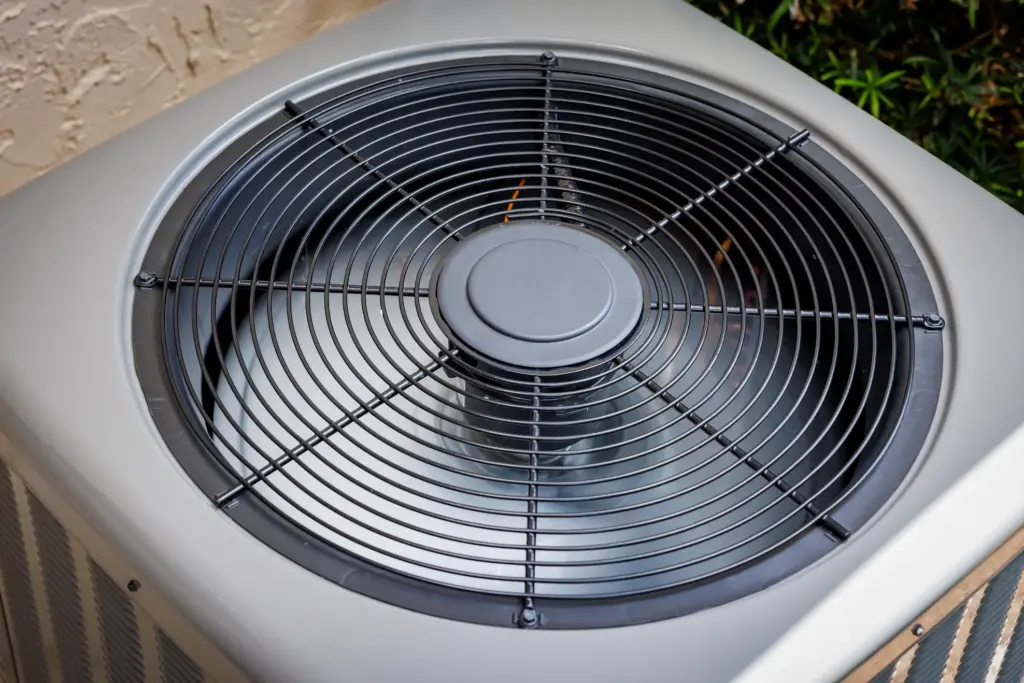Fan On Air Conditioning Unit Not Working

Troubleshooting: When Your AC Fan Fails to Kick On
An air conditioning system is a complex piece of machinery, relying on a synchronized dance between various components to deliver cool comfort. When a crucial element like the fan malfunctions, the entire system can grind to a halt. A non-operational AC fan is a common issue that can stem from a variety of causes, ranging from simple fixes to more complex technical problems. This article delves into the potential reasons why your AC fan might not be working, offers practical troubleshooting tips, and explores the career implications for HVAC professionals.
Understanding the Importance of the AC Fan
The AC fan plays a vital role in the cooling process. It performs two critical functions:
- Indoor Fan (Blower Fan): Circulates air throughout your home, drawing warm air across the evaporator coil to be cooled and then distributing the chilled air through the vents.
- Outdoor Fan (Condenser Fan): Dissipates heat from the condenser coil, allowing the refrigerant to release the heat absorbed from inside the house. Without a functioning condenser fan, the system cannot efficiently release heat, leading to overheating and potential compressor damage.
A malfunctioning fan disrupts this process, potentially leading to uncomfortable indoor temperatures, increased energy bills, and costly repairs if left unaddressed. According to the U.S. Energy Information Administration (EIA), air conditioning accounts for a significant portion of household energy consumption, making efficient AC operation crucial.
Common Causes of a Non-Operational AC Fan
Diagnosing the root cause of a non-operational AC fan requires a systematic approach. Here are some of the most common culprits:
- Power Issues: This is the first thing to check. Is the unit receiving power? Check the circuit breaker for tripped breakers. Also, inspect the disconnect switch near the outdoor unit.
- Capacitor Problems: Capacitors provide the initial surge of energy needed to start the fan motor. A faulty capacitor is a frequent cause of fan failure. A bulging or leaking capacitor is a telltale sign of a problem. This requires professional attention.
- Motor Failure: The fan motor itself may be damaged or worn out. Listen for unusual noises coming from the fan motor, which could indicate bearing issues or winding problems.
- Blocked Fan Blades: Debris like leaves, twigs, or even small animals can obstruct the fan blades, preventing them from spinning freely.
- Wiring Issues: Loose or corroded wiring connections can interrupt the flow of electricity to the fan motor.
- Contactor Problems: The contactor is an electrical switch that sends power to the condenser fan motor. A faulty contactor can prevent the fan from starting.
- Control Board Malfunctions: The control board is the brain of the AC system, controlling the operation of various components. A faulty control board can prevent the fan from receiving the signal to turn on.
- Frozen Evaporator Coil: If the evaporator coil freezes, it can restrict airflow and trigger a safety switch that shuts down the system, including the fan. This is often caused by low refrigerant levels or a dirty air filter.
Troubleshooting Steps: A DIY Approach (with Caution)
While some troubleshooting steps can be safely performed by homeowners, it's crucial to exercise caution and prioritize safety. Always disconnect the power to the unit before attempting any repairs.
- Check the Power Supply: Verify that the circuit breaker is not tripped and the disconnect switch is in the "on" position.
- Inspect the Fan Blades: Remove any visible debris blocking the fan blades.
- Clean the Unit: Clean the outdoor condenser unit to ensure proper airflow.
- Check the Air Filter: A dirty air filter can restrict airflow and cause the evaporator coil to freeze. Replace the filter regularly.
Important Note: Any work involving electrical components, refrigerant handling, or complex mechanical repairs should be left to qualified HVAC professionals. Tampering with these components can be dangerous and may void your warranty.
The HVAC Career Path: A Booming Industry
The demand for skilled HVAC technicians is projected to grow significantly in the coming years. The U.S. Bureau of Labor Statistics (BLS) projects a growth rate of 6% for HVAC mechanics and installers from 2022 to 2032, about as fast as the average for all occupations. This growth is driven by factors such as population growth, increasing construction activity, and the need for energy-efficient HVAC systems.
The median annual wage for HVAC mechanics and installers was $59,690 in May 2023. The highest 10 percent earned more than $84,910. Salaries can vary depending on experience, location, and specialization.
Career Paths in HVAC:
- Entry-Level Technician: Typically involves assisting experienced technicians with installations, maintenance, and repairs.
- HVAC Technician: Performs routine maintenance, diagnoses and repairs HVAC systems, and installs new equipment.
- HVAC Installer: Specializes in installing new HVAC systems in residential and commercial buildings.
- HVAC Service Manager: Oversees a team of technicians, manages service schedules, and ensures customer satisfaction.
- HVAC Sales Engineer: Designs and sells HVAC systems to commercial and industrial clients.
- HVAC Contractor: Owns and operates an HVAC business, managing all aspects of the business, from sales to service.
The Importance of Certifications
Earning industry-recognized certifications can significantly enhance your career prospects and earning potential. Some of the most valuable certifications for HVAC professionals include:
- NATE (North American Technician Excellence): NATE certification is a widely recognized credential that demonstrates a technician's knowledge and skills in specific areas of HVAC.
- EPA Section 608 Certification: This certification is required for technicians who handle refrigerants. It ensures that technicians understand the proper procedures for handling refrigerants to prevent environmental damage.
- HVAC Excellence: HVAC Excellence offers a variety of certifications that demonstrate competency in specific areas of HVAC, such as air conditioning, heating, and refrigeration.
Employers often prioritize candidates with these certifications, as they demonstrate a commitment to professionalism and a high level of expertise. Holding a NATE certification, for example, can lead to higher pay and greater job opportunities. According to industry surveys, NATE-certified technicians often command higher hourly rates than their non-certified counterparts.
Real-World Example: From Apprentice to Business Owner
Consider the story of Maria, a recent high school graduate who initially felt unsure about her career path. After researching various options, she decided to pursue a career in HVAC. She enrolled in a local trade school, where she learned the fundamentals of HVAC systems. Upon graduating, she secured an apprenticeship with a reputable HVAC company.
During her apprenticeship, Maria gained hands-on experience in installing, maintaining, and repairing various types of HVAC systems. She also obtained her EPA 608 certification and began preparing for the NATE exams. After several years of hard work and dedication, Maria became a certified HVAC technician and quickly advanced to a senior technician role.
Driven by her entrepreneurial spirit, Maria eventually decided to start her own HVAC business. She leveraged her technical expertise, business acumen, and strong customer service skills to build a successful company. Today, Maria employs a team of technicians and provides HVAC services to residential and commercial clients throughout her community.
The Future of HVAC: Embracing Technology and Sustainability
The HVAC industry is constantly evolving, driven by technological advancements and increasing demand for energy-efficient solutions. Smart thermostats, variable-speed drives, and advanced control systems are becoming increasingly prevalent, requiring technicians to stay up-to-date with the latest technologies.
Sustainability is also a major trend in the HVAC industry. Customers are increasingly seeking energy-efficient HVAC systems that can reduce their energy consumption and environmental impact. Technicians who are knowledgeable about sustainable HVAC practices, such as refrigerant management and energy-efficient system design, will be in high demand.
For employers, staying competitive requires investing in training and development for their workforce. Providing opportunities for technicians to obtain certifications and learn about new technologies is crucial for attracting and retaining top talent.
In conclusion, a non-operational AC fan can be a frustrating issue, but understanding the potential causes and troubleshooting steps can help you resolve the problem quickly and efficiently. For those considering a career in HVAC, the industry offers excellent job prospects, competitive salaries, and opportunities for professional growth. Embracing technology, pursuing certifications, and focusing on sustainability will be key to success in the evolving HVAC landscape.










